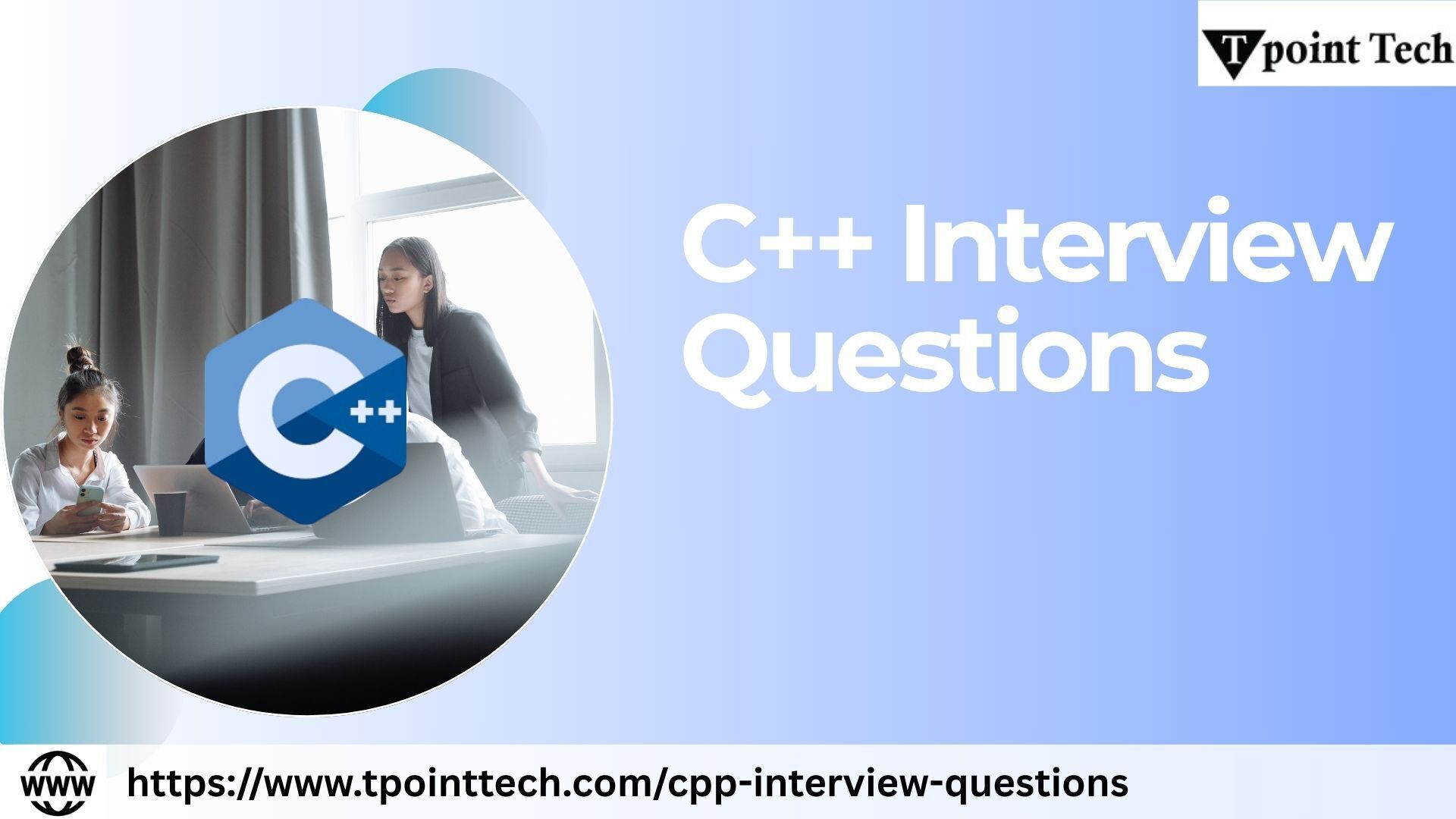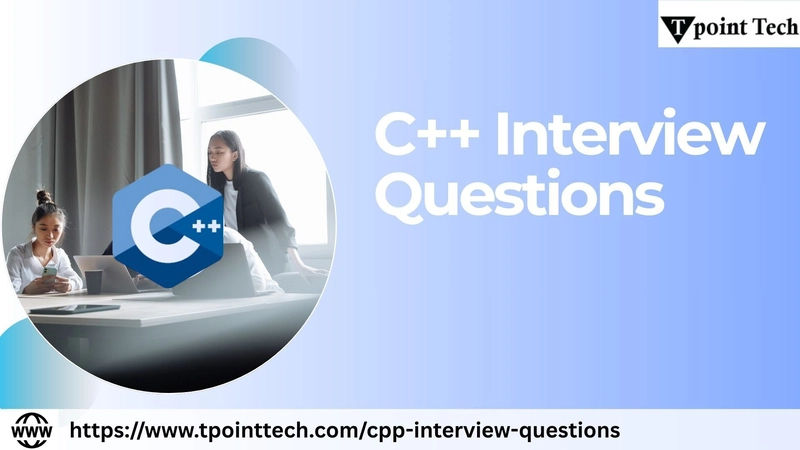Preparing for a C++ interview can feel overwhelming, especially when you're aiming to stand out in a competitive job market. Whether you're a fresh graduate or an experienced developer, understanding how to approach C++ Interview Questions with clarity and confidence is key to landing your dream role. This comprehensive guide will walk you through common topics, share practical tips, and help you make the most of your preparation journey—all without diving into code.

Why C++?
C++ remains one of the most powerful and widely used programming languages in industries such as gaming, finance, embedded systems, and more. Its performance capabilities, system-level access, and object-oriented features make it a preferred choice for many high-performance applications.
As a result, interviewers expect candidates to have a solid grasp of C++ fundamentals, memory management, object-oriented design, and often, a good understanding of how C++ differs from other programming languages. This guide aims to help you prepare efficiently and confidently.
Core Areas to Focus On
When preparing for C++ interviews, it's helpful to break down your study plan into key categories. Below are the major areas commonly covered:
1. Object-Oriented Programming (OOP)
C++ is well known for its support of OOP principles such as encapsulation, inheritance, and polymorphism. Interviewers often explore your understanding of these concepts, especially in real-world design scenarios.
Expect questions like:
- What is the difference between inheritance and composition?
- How does polymorphism work in C++?
- What is the role of constructors and destructors?
Understanding the philosophy behind OOP can help you handle these C++ Interview Questions with ease.
2. Memory Management
C++ gives developers low-level control over memory, which can be both powerful and risky. Questions around pointers, dynamic memory allocation, memory leaks, and smart pointers are very common.
You might be asked:
- How do you avoid memory leaks in C++?
- What’s the difference between new/delete and smart pointers?
- How does RAII (Resource Acquisition Is Initialization) work?
Having a clear conceptual understanding of these topics is crucial.
3. Standard Template Library (STL)
The STL is a core part of any C++ Tutorial and is widely used in real-world applications. Familiarity with containers (like vectors, maps, and sets), iterators, and algorithms can make a big difference in interviews.
Common questions include:
- What are the advantages of using STL containers?
- How does a map differ from an unordered_map?
- What are iterators and how do they work?
Don’t just memorize terms—try to understand their practical use cases.
4. Advanced Concepts
For more senior roles, interviewers might explore complex topics such as multi-threading, lambda expressions, exception handling, and templates.
Sample areas include:
- How do you implement thread safety in C++?
- What is a lambda function, and where would you use it?
- How does template specialization work?
These topics often require deeper study and application, but mastering them can really help you stand out.
Behavioral and Design Questions
Apart from technical topics, you may also be asked about your approach to problem-solving, code design, or working on large-scale projects.
Prepare to discuss:
- How you designed a system using C++
- Challenges you faced and how you overcame them
- Trade-offs you made in terms of performance vs. readability
These are opportunities to showcase your thinking, communication, and teamwork skills.
Interview Tips for Success
Here are a few tried-and-true tips to help you make the most of your C++ interview preparation:
1. Build a Study Schedule
Structure your time by breaking down topics covered in any solid C++ Tutorial. Allocate time to each area, and make sure to review and revise regularly.
2. Practice Without Memorizing
While it’s helpful to know definitions, interviews are rarely about rote learning. Focus instead on understanding how and why things work in C++.
3. Simulate Interview Scenarios
Practice answering questions out loud, or conduct mock interviews with friends or mentors. Being able to explain concepts clearly is just as important as understanding them.
4. Keep Up With Best Practices
C++ is a language that evolves. Make sure you're familiar with modern features introduced in recent standards like C++11, C++14, or C++17. Interviewers appreciate candidates who stay up to date.
5. Stay Calm and Confident
Even if you don’t know the answer to a question, explain your thought process. Interviewers value clarity and logical thinking more than just getting the "right" answer.
Final Thoughts
Preparing for C++ Interview Questions is not just about reviewing theory; it’s about developing a clear, confident understanding of core concepts and being able to communicate them effectively. Use this guide as a starting point, and combine it with a hands-on C++ Tutorial to reinforce your knowledge.
Approach your interviews with curiosity, humility, and readiness to learn—and you’ll be well on your way to success. Good luck!

